The work of The National Archives’ Education & Outreach department is dedicated to helping school students, teachers, families, young people, and community groups to explore and interpret archive documents. Part of the department’s strategy is dedicated to helping these audiences interact with under-represented and marginalised histories. Much work has already been undertaken by the Onsite and Online Education, and Outreach teams to do this through workshops, teaching resources and long-term arts projects. The young people’s programme also seeks to do this by connecting them to issues which are relevant to their own lives.
‘Uncovering LGBTQ+ lives in the archive’ is the seventh edition of a young people’s filmmaking project run by the department, kindly funded by the Friends of The National Archives (FTNA). The outcome was a series of films combining puppetry, model-making and animation, created by a group of eight young people aged 16–20 in July 2022. The young people explored documents relating to moments in LGBTQ+ history in the collection, using their 21st century interpretations to inspire the artwork and narratives for their short films.
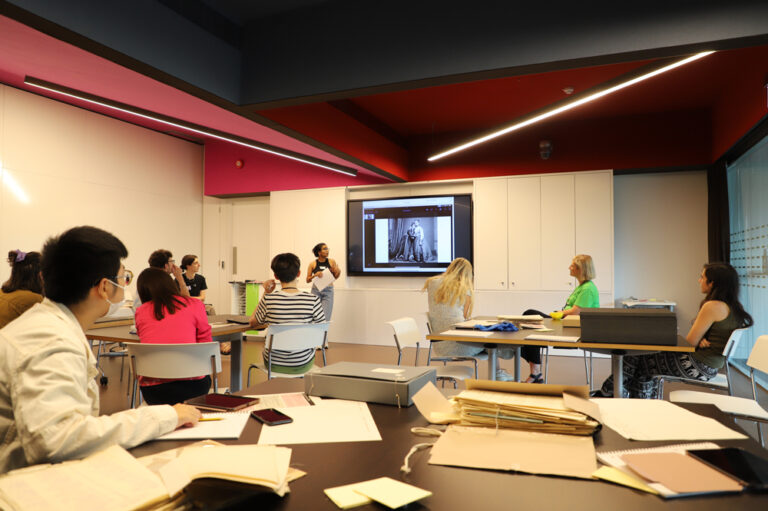
This was the first young person’s project to be run onsite since 2019, so it was exciting to feel the buzz and atmosphere that the young people brought with them. The group worked with a filmmaking team led by Nigel Kellaway, as well as staff from the Education and Outreach department and record specialists. The records they explored were spread between series such as the Home Office, the Metropolitan Police, the Central Criminal Court and the Director of Public Prosecutions, reflecting the State’s intervention and interest in people’s expression of their sexuality.
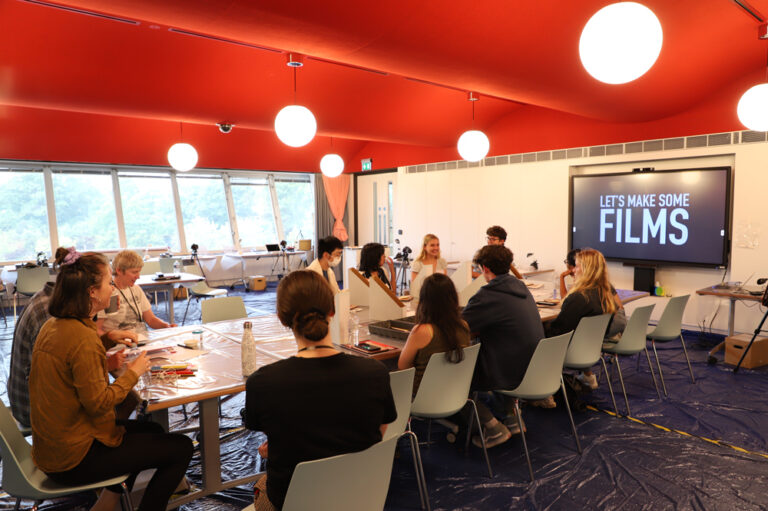
An important part of the development of the project was a training course undertaken by staff on the ‘A–Z of LGBTQ+ Awareness’. The course was facilitated by Dr Jack Doyle from MindOut. Jack developed a bespoke session with a youth and historical focus, which enabled staff to build skills and confidence when working with sensitive material with young people.
The project itself ran over five days in the summer holidays, following a welcome day at the archives a couple of weeks before.
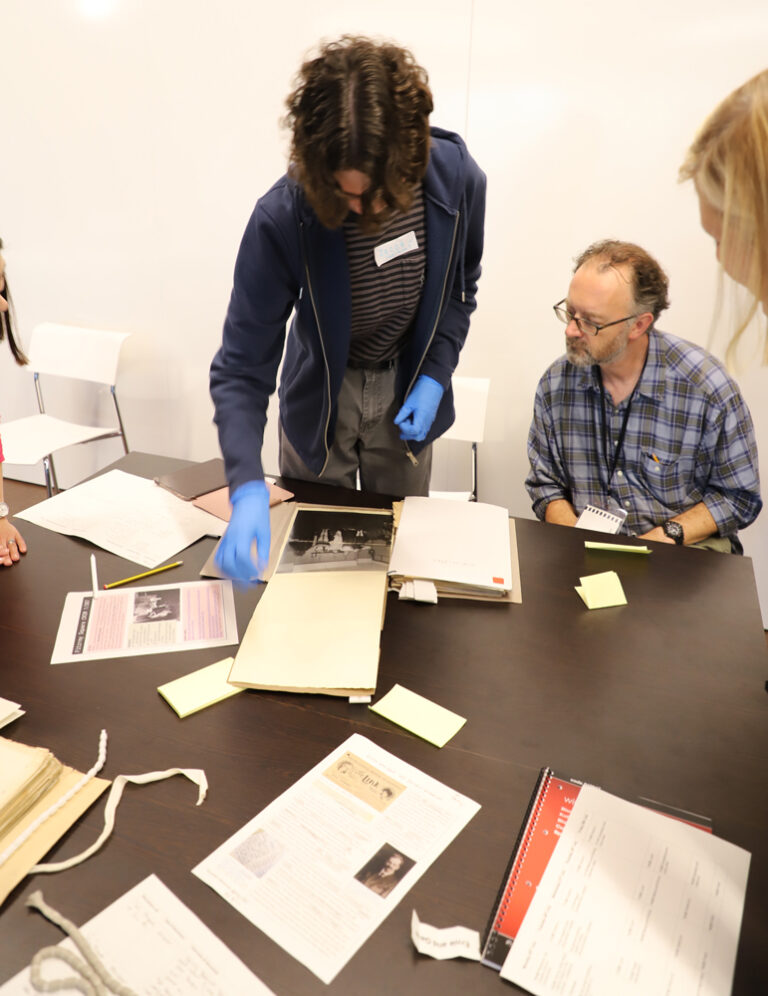
Starting in the records
The first day was spent in document workshops where the group started to explore the records for themselves. The records had been curated by the team to reflect as many stories and experiences as possible, taking into consideration some of the limitations of the documents being from a government or police perspective. The stories in the documents all touched upon different themes which run as threads throughout the films. For example, how language was used, spaces and venues where LGBTQ+ people socialised, and the role of the state.
‘I particularly [liked] all of the document work’
one of the participants
Our colleague, Vicky Iglikowski-Broad, Principal Records Specialist for Diverse Histories, gave an introductory talk on LGBTQ+ history in the collection, which was vital to help the young people understand the historical and archival context of the records. The team would like to thank Vicky for her sharing time and knowledge, and to recognise that her work over several years into researching and highlighting these stories was vital to the development of this project.
The people and places that the films explore are: Dr James Barry, Fanny and Stella, The Link magazine, Radclyffe Hall, 25 Fitzroy Square, the Caravan Club, the Shim Sham Club, and the Wolfenden Report. The group really impressed all of us with how they interpreted the records in a compassionate and thoughtful way, giving staff members a fresh take on the material.
Storyboarding, scripting and filmmaking
After a day researching the archive records, the young people started to develop their animated films. Supported by Nigel and his team they drew storyboards, wrote scripts and then started building their sets and models.
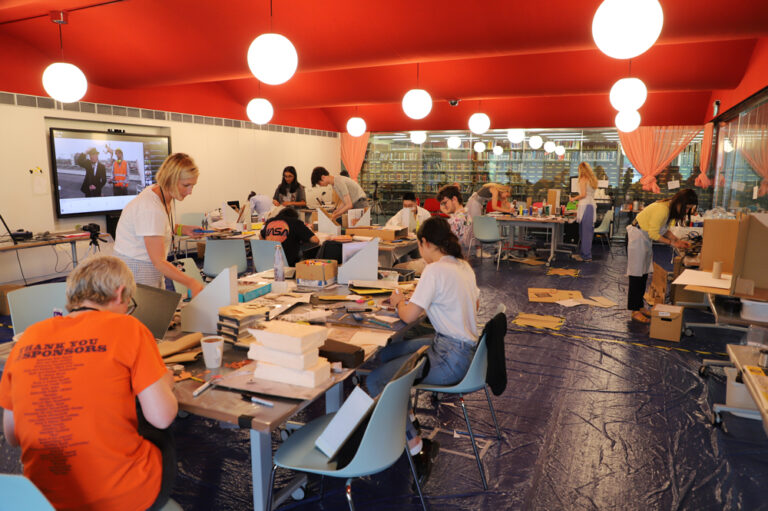
One of our learning spaces was transformed into a filmmaking studio, covered in tarpaulin, computers, cameras and vast amounts of materials. Scattered around you would have seen an array of sets and props being fashioned from scratch, including tiny books for a bookshop display, a scale model of Fitzroy Square complete with acid-yellow wallpaper, and a map of London covered with miniature toilet doors.
We were pleased to see the group making themselves comfortable, with music playing, lots of chat, and eating lunch with each other every day.
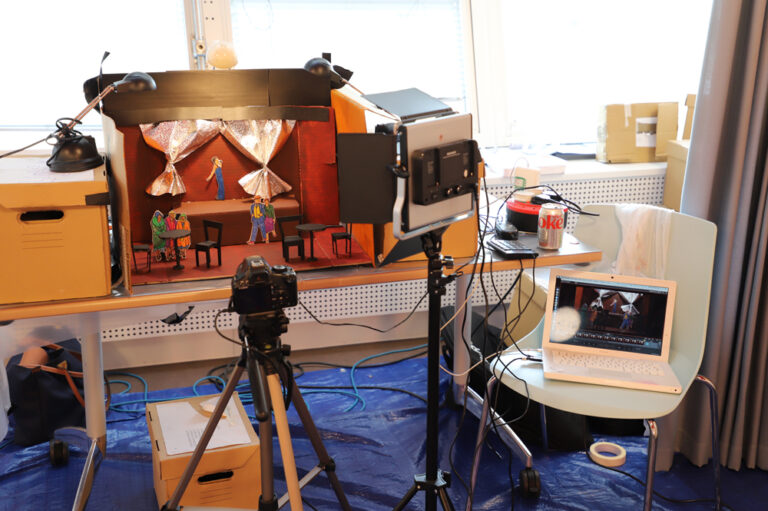
On Thursday, the filming really began, and continued into Friday, with voiceovers also being recorded in a pop-up booth. All staff members were relieved that, by 4pm, everyone had finished shooting their films and had even started to help with the tidying up.
‘I enjoyed meeting like-minded people and getting some experience in filmmaking’
one of the participants
Showcasing the films
The resulting series of films are poignant, informative, and insightful. The young people’s enthusiasm and dedication to the project was fantastic. They were a real testament to themselves and their creativity, clearly passionate about giving a voice back to those who had been silenced. We immensely enjoyed their company over the week – the building always feels very quiet afterwards!
The films were premiered at a special showcase evening to celebrate the young people’s achievements.
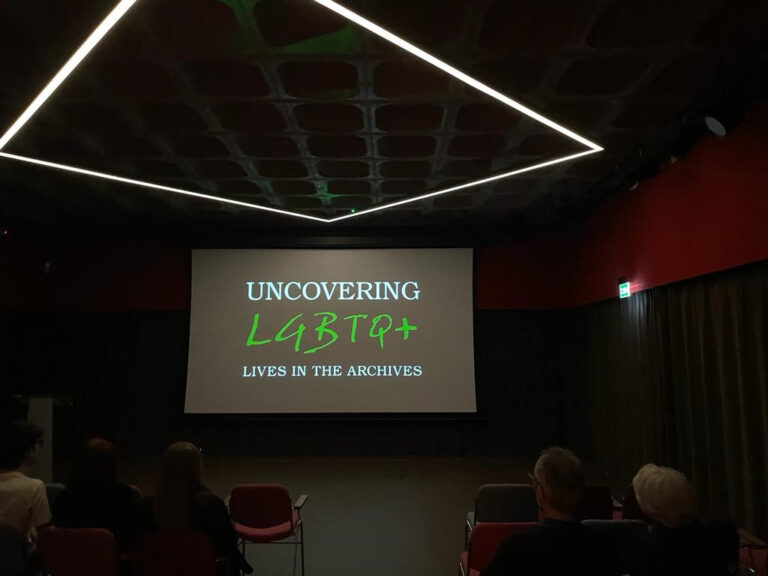
All the group said that they would like to work with original archive documents again, and when asked to describe the project, they used words such as ‘fun’, ‘friendly’, ‘fascinating’, ‘creative’, ‘inclusive’ and ‘interesting’. The team take these to be signs of a successful project!
The project team would like to thank FTNA for helping to make this project possible and for supporting our endeavours over several years.
All the films are available to watch on our website, which you can see alongside a classroom teaching resource. I hope you enjoy them.
You can also enjoy looking at the outcomes of previous young people’s projects.